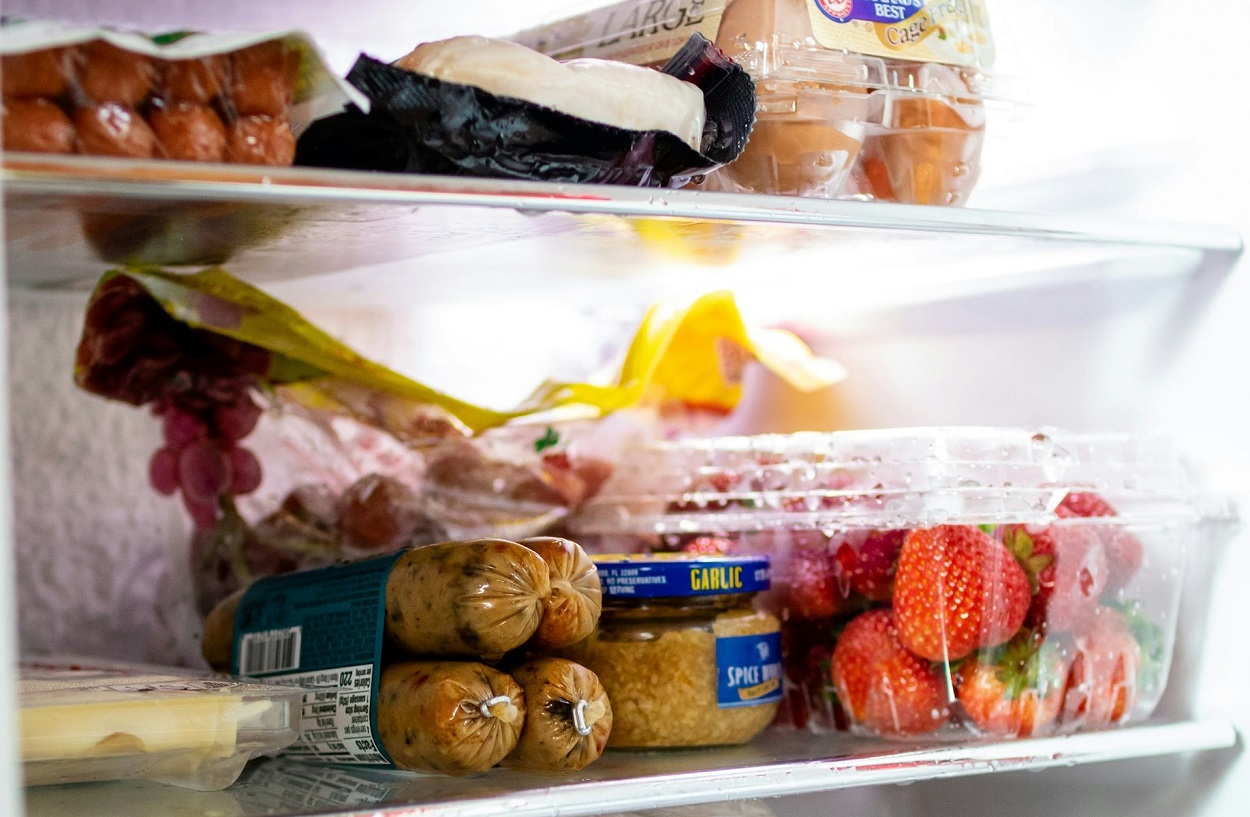
UT Extension Shares Waste Reduction Tips, Food Drives Begin March 31
KNOXVILLE, Tenn. – Did you know that about one-third of the U.S. food supply is wasted, and of that amount, about 35% comes from residential households? That’s more than the amount of food waste occurring on farms, manufacturing, retail and foodservice. Yet there are simple steps you can take to help reduce that amount.
Educators hope to raise awareness and equip residents with knowledge to reduce waste during National Food Waste Prevention Week, taking place April 7 through 13. The Tennessee Department of Environment and Conservation leads Food Waste Prevention Week efforts in the state. Partner organizations helping to coordinate and plan in-person events, the statewide food drive and other educational opportunities include University of Tennessee/Tennessee State University Extension, the Tennessee Department of Agriculture, the food gleaning organization Society of St. Andrew and others.
Kristen Johnson, a family and consumer sciences nutrition specialist with UT Extension, is one of the educators spreading the word about the problem of food waste and practical steps people can take to reduce it.
“Estimates tell us that, on average, households waste almost one-third of the food that they purchase,” Johnson says. “This amount of food can really add up in cost! Preventing food waste helps us save money and has other important benefits as well. These include addressing hunger in our local community and supporting our resources and environment.”
Johnson shares these tips on how to reduce home food waste:
Plan and Shop for Food Wisely
Plan your meals for the upcoming week and remember to check your freezer, pantry and refrigerator before buying food. Incorporate leftovers and any foods that need to be used quickly into your meal plan.
Use your meal plan to develop a shopping list and only purchase what you are able to use or freeze before it spoils. Remember that buying in bulk and deals like “Buy One Get One Free” are only good deals if you can use and store the food before it spoils.
Store Foods Properly
Storing food properly helps us maximize our money! Remember to refrigerate or freeze perishable foods within two hours of purchasing or preparing (one hour if it is 90 F or hotter) so that food remains safe to eat. Keep in mind that some foods like blueberries, strawberries and lettuce should be stored in the refrigerator. Other foods like watermelon, bananas and tomatoes should be stored on the counter while onions, garlic and potatoes are best stored in a dark, dry place. Avoid storing milk and eggs in the refrigerator door to prolong their use.
Understand Food Date Labels
Food date labels like Sell By, Use By, Freeze By, or Best if Used By can be confusing and often lead to food waste. These dates are used to communicate the quality of a product and do not reflect the safety of a product except when they are found on infant formula. Infant formula should not be used past the “Use By” date. Other products can be used after the date on the label has passed until they spoil, if they are stored and handled properly. Spoiled foods will have an off flavor, odor or texture and should not be eaten.
Prevent Food from Going to the Landfill
Compost food scraps and donate safe, unused products to food banks or food pantries.
During National Food Waste Prevention Week, residents can donate their excess food at special food drives happening across the state. The drives run from March 31 through April 13 and include 45 UT/TSU Extension offices. Find more information about events as well as a full list of food drive locations at Get Smart Tennessee.
The University of Tennessee Institute of Agriculture is comprised of the Herbert College of Agriculture, UT College of Veterinary Medicine, UT AgResearch and UT Extension. Through its land-grant mission of teaching, research and outreach, the Institute touches lives and provides Real. Life. Solutions. to Tennesseans and beyond. utia.tennessee.edu.